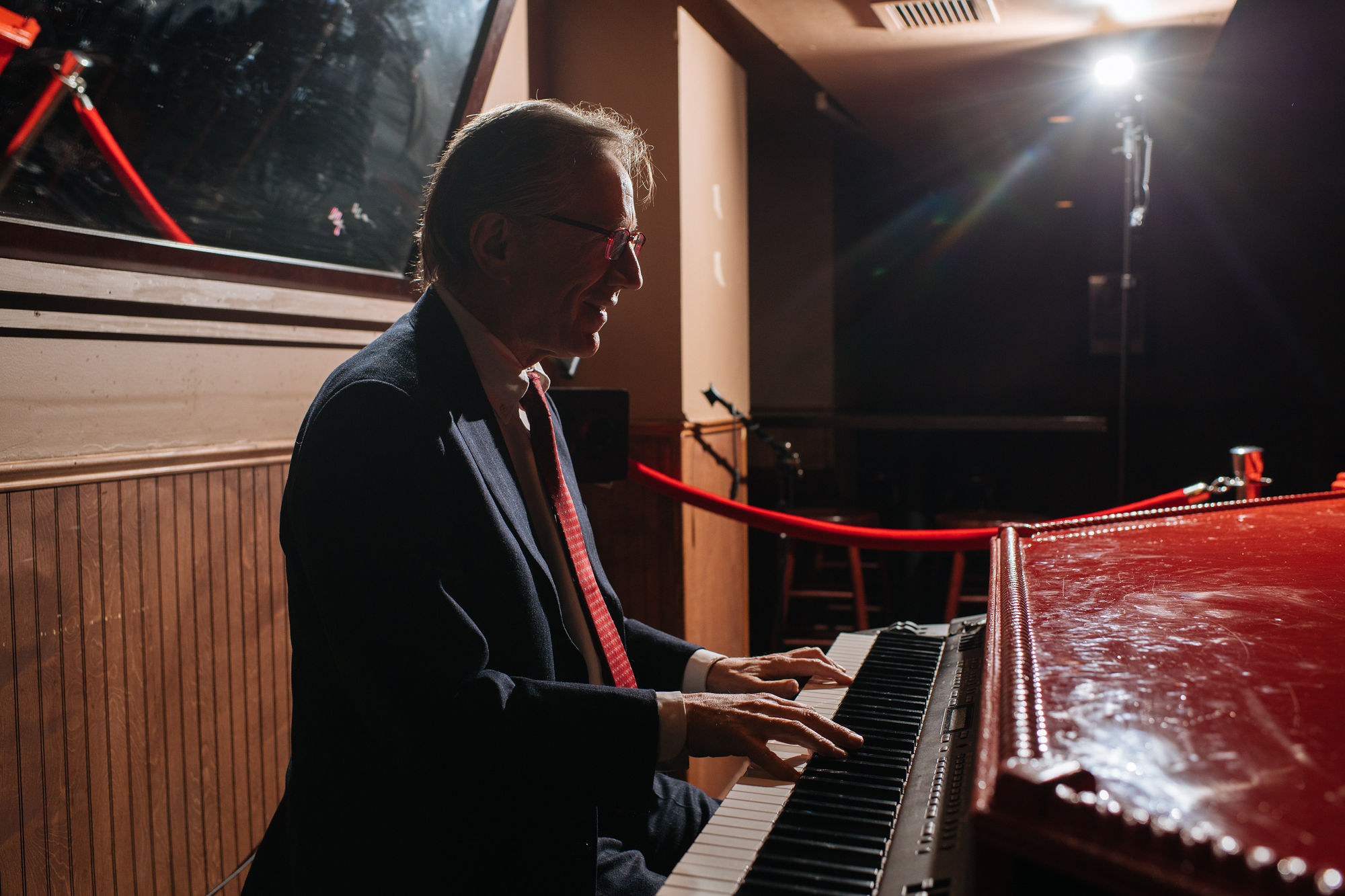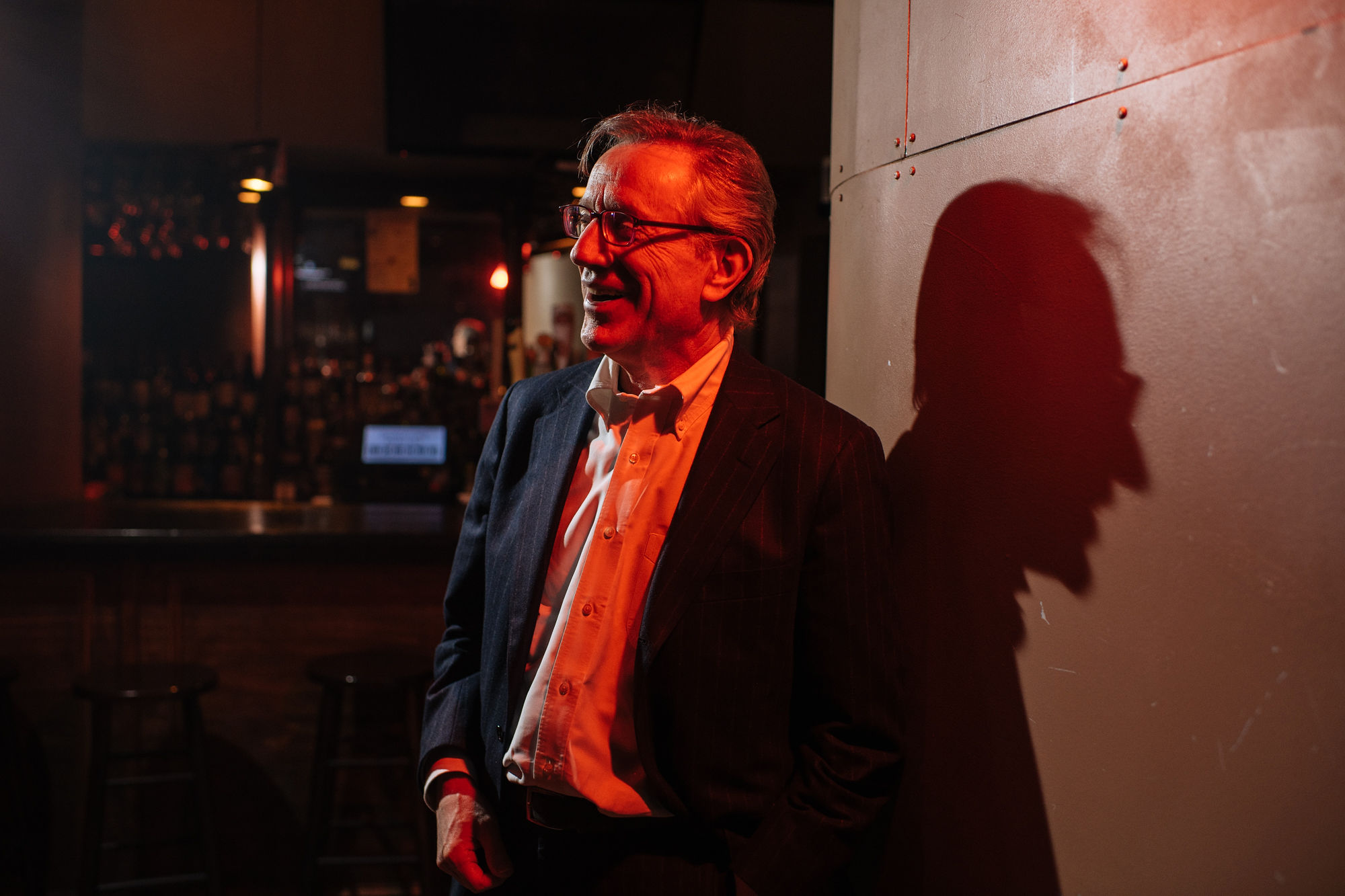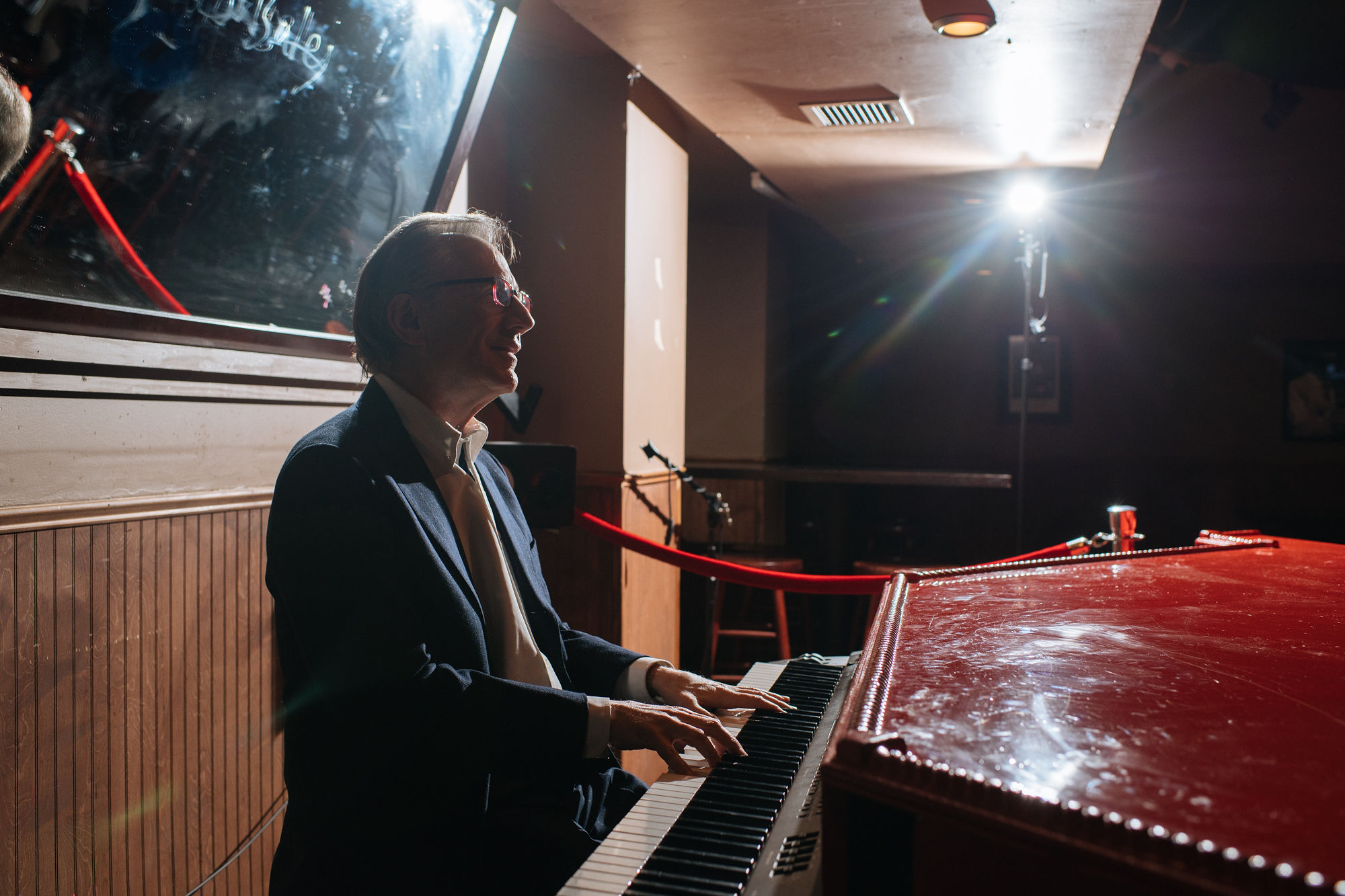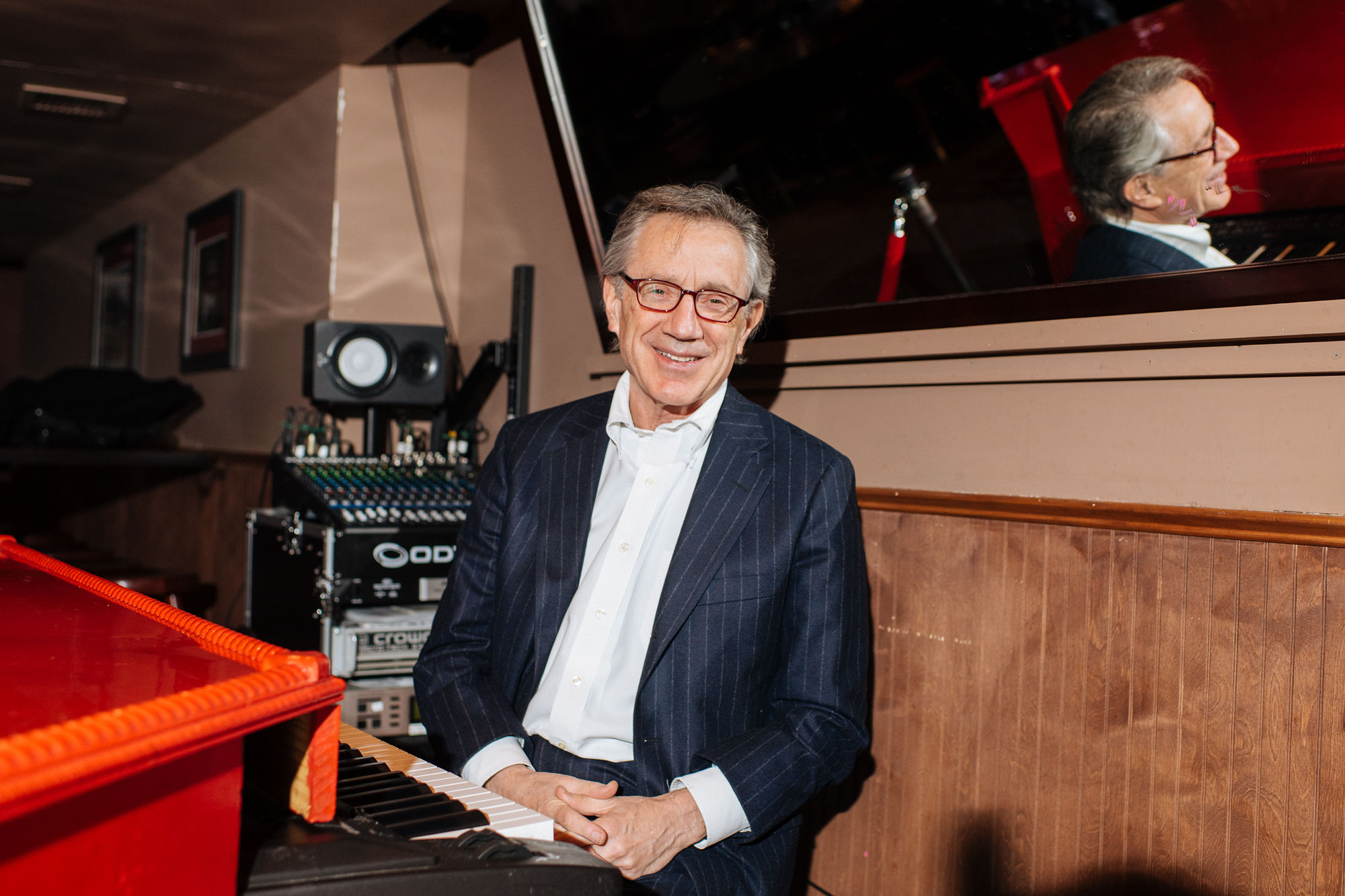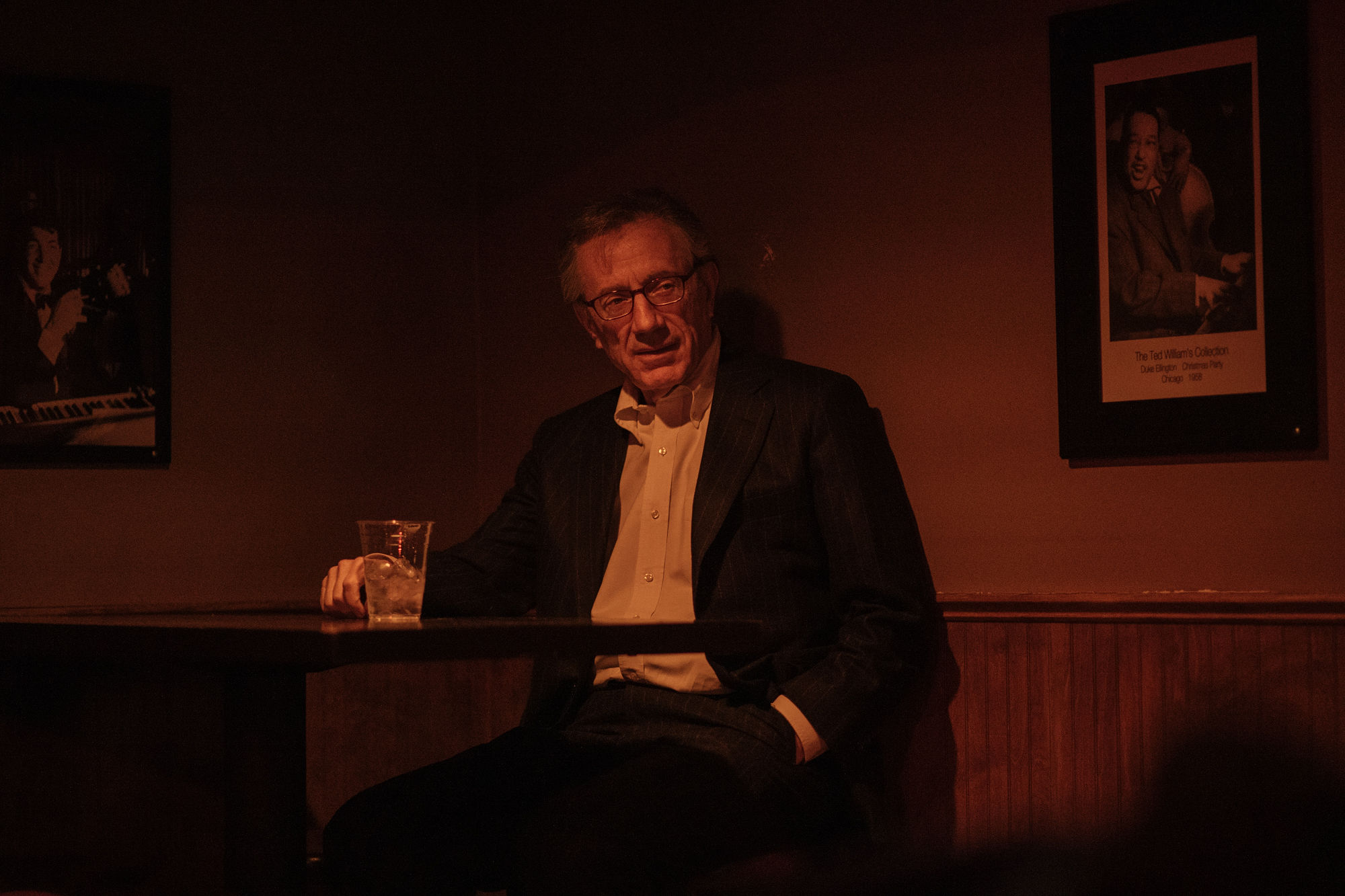‘I Never Get Tired of Playing Those Songs’
Every Saturday, a group of young 20-somethings shouts a spirited chorus of ‘ba, ba, baa’s.’ They have no idea the man behind the piano is behind their health insurance, too.
By night, Jay Angoff moonlights as one of the regular dueling piano performers at Georgetown Piano Bar, along with Hunter Lang. By day, he’s one of the biggest health care reform players in town.
Now a class action litigator at the law firm of Mehri & Skalet, Jay previously served as Director of the Office of Consumer Information and Insurance Oversight under the Obama Administration, responsible for crafting the Patient’s Bill of Rights for the Affordable Care Act. No lifetime limits, coverage under your parents’ insurance until age 26, affordable insurance despite pre-existing conditions—all regulations that Jay oversaw.
‘Playing the piano is less remunerative, but it’s more fun.’
It’s also less divisive. Unlike Obamacare, you’ll be hard pressed to find an American who doesn’t love ‘Sweet Caroline.’
‘There’s a standard piano bar cannon. If I were to rank it, ‘Sweet Caroline’, ‘Don’t Stop Believin’, ‘Piano Man’, ‘Brown-Eyed Girl’, ‘Build Me Up Buttercup’, ‘American Pie’. For me, it’s always fun to play. I don’t get tired of any of them.’
Growing up in New Jersey, Jay ‘banged around’ on the piano from a young age. By his teens, rock replaced ‘Mary Had a Little Lamb.’ He toured the east coast as a keyboardist for the band Brooklyn Bridge, whose big hit, ‘The Worst That Could Happen’, landed in the Billboard Top 5 a few years prior.
‘I played with the group on the way down, not the way up.’
After graduating from Oberlin College in 1973 and earning a JD from Vanderbilt in 1978, Jay moved to DC for a decade. When he returned 20 years later—on the heels of Obamacare—the occasional gig at Mr. Smith’s offered a welcome respite from politics. It was no Madison Square Garden, but it felt like home.
When Mr. Smith’s closed its M Street location in 2014, several of its employees opened Georgetown Piano Bar. Jay moved with them, and has been playing Happy Hours, and eventually Saturdays, there ever since.
‘I would hesitate to say people come every week to see Hunter and me, but there are people who come often. What I’m doing isn’t high art, but it’s something. It’s fun.’
Jay plays for a wide range of patrons, from Georgetown University students, to the grandmother who recently celebrated her 81st birthday with two generations of offspring in tow. No matter the crowd, he settles in behind the piano a little after 9 every Saturday, and keeps the party going until nearly 3 am.
‘There’s an arc to the night. People aren’t singing and dancing all night. But for part of the night they are—if we do our jobs.’
Each night is its own unique combination of requests and set lists; a tension between the two.
‘It’s the most fun for me, and for the people in the audience, when everyone is singing and dancing, and really into it. But certain songs aren’t conducive to that. Sometimes people request songs that are good songs, but they’re sort of party killers. They’re too slow or they’re nine minutes long. You’ve gotta balance it. If people request songs, and they’re nice enough to include a modest freewill donation, you want to play them. But if people are having a good time, you don’t want to interrupt that.’
By 2 am, Jay still has a few songs in him—his favorite, The Band’s’ The Weight’, already tucked in there somewhere, if he found the opportunity. It’s one of the few he says he can sing decently, plus it’s got a great piano part. Jay sings along to a lot of other songs, but admits it’s not his strong suit.
‘What I like best is accompanying really good singers. But you do what you have to do.’
On any given night, most of the people tapping, swaying, and singing along in this M Street basement bar are none the wiser. About Jay’s voice, or his political prowess. He’s just the piano man; delivering hit after hit.
‘When people tell ya they really had a good time tonight—that’s the most satisfying.’
